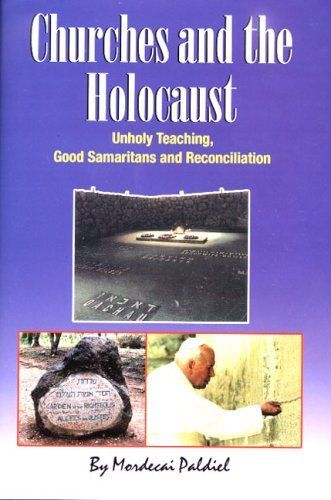
Churches and the Holocaust Unholy Teaching, Good Samaritans, and Reconciliation
A study of Christian clerics who have been declared "Righteous among the Nations" by Yad Vashem; the number at present is close to 600. Examines activities of rescuers country by country, e.g. Germany, France, Belgium, the Netherlands, Poland, other countries of Eastern Europe, and Italy. Aid given to persecuted Jews included protests against official antisemitism, intervention with authorities, sermons calling on congregations to help Jews, providing Jews with Christian identity papers, and hiding Jews. Stresses that the Churches did not abandon their anti-Judaic doctrines during the Holocaust, and many of the rescuers were known as antisemites before the war. Some of the clerics approved the early anti-Jewish measures of the occupiers or of the pro-Nazi governments, but protested when the deportations began. Examines the motives of the clerical rescuers, which involved compassion and a necessity to help the persecuted in the spirit of the parable of the Good Samaritan, as well as a deep respect for Jews and Judaism, which was especially typical of Protestants. Protestants in countries where they were a small and persecuted minority rendered more help to Jews during the Holocaust than the dominant Catholic or Orthodox populations. After World War II the Catholic and Protestant Churches acknowledged a measure of responsibility for the genocide of the Jews.